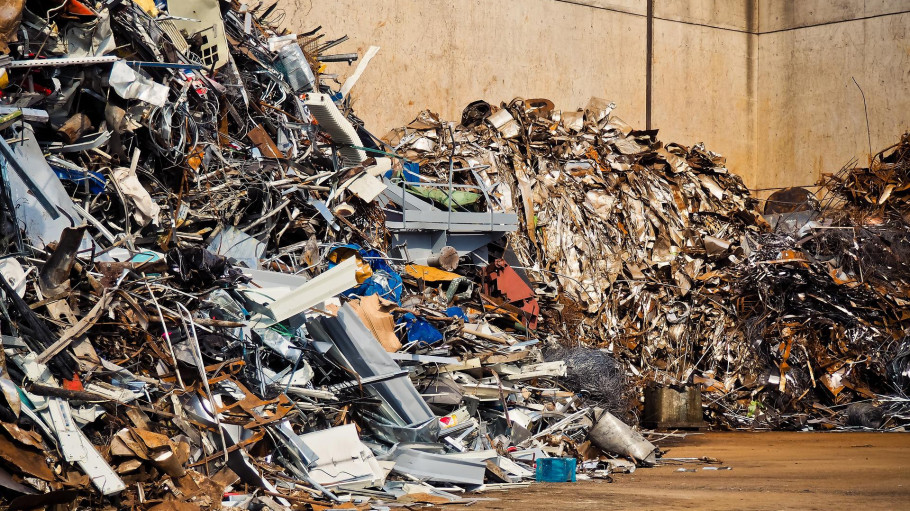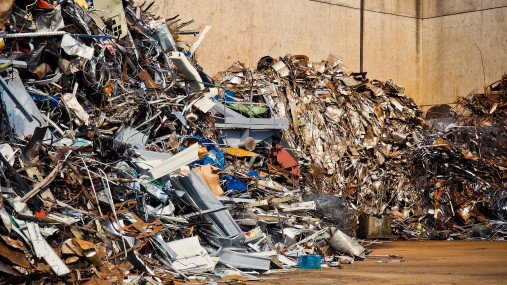
Press releases » Stop waste and scrap export to countries not meeting EU environmental and social standards, asks EUROFER
Stop waste and scrap export to countries not meeting EU environmental and social standards, asks EUROFER
Downloads and links
Recent updates

Brussels, 11 May 2022 – The current Waste Shipment Regulation proposal lacks effective measures to tackle environmental challenges of waste exports and to enhance EU resiliency on valuable secondary raw materials, risking to undermine the EU’s Circular Economy and Green Deal objectives, warns the European Steel Association (EUROFER) on the occasion of the presentation of the draft report by the Environment Committee at the European Parliament.
“The current provisions on waste export are clearly insufficient and bound to become a missed opportunity for climate, industry, citizens and the EU as a whole”, said Axel Eggert, Director General of the European Steel Association (EUROFER). “We are in an absurd situation where the EU sets very high environmental standards and circular economy objectives for the internal market – that the EU steel industry fully shares -, while millions of tons of valuable secondary raw materials are being exported to jurisdictions where these same standards and objectives are not met. We cannot afford to give away a key secondary raw material such as scrap, if we want to fulfil the circular economy and climate objectives as well as ensuring EU strategic autonomy and social standards”, he stressed.
Already today 48% of EU steel production is based on scrap, and more will be needed in the coming years as the transition to low carbon steel production accelerates. However, the EU is increasingly exporting its waste to third countries with lower environmental, climate, labour and social standards. According to Eurostat, EU total export of ferrous metals scrap reached 19,5 million tonnes in 2021, representing 48% of all exported recyclable materials. Turkey was the first export destination, with 13,1 million tonnes of ferrous metal exported from the EU.
In particular, the Waste Shipment Regulation should not automatically grant equivalence of such strict EU standards to all third countries with OECD status, as reports have shown evidence of serious shortcomings in waste treatment in some of them. Therefore, a proper country level assessment should be introduced for all export destinations. This would also contribute to ensure a level-playing field across operators and jurisdictions. “Why should countries get a free ride only because they have OECD status? This does not make any sense”, says Mr. Eggert.
The obligation on waste exporters to conduct an audit is the most innovative part of the proposal, but its success depends on how audits will be carried out. This is why an effective and reliable procedure is needed to ensure trustworthiness and transparency.
Social standards should also be included together with environmental requirements, as health, safety and labour conditions are key aspects of the Environmentally Sound Management principle. Finally, it is also crucial to minimise the risk of circumvention and illegal waste shipments by avoiding the reclassification of exports as end-of-waste, as it would completely undermine the entire legislative proposal.
“Today’s draft report is a first step, especially regarding the facilitation of intra EU shipment of waste and the support for research and development. However, we encourage the Environment Committee to consider significant improvements also with regard to waste exports to third countries, supporting a sound environmental policy”, concluded Mr. Eggert.
Contact
Lucia Sali, Spokesperson and Head of Communications, +32 2 738 79 35, (l.sali@eurofer.eu)
About the European Steel Association (EUROFER)
EUROFER AISBL is located in Brussels and was founded in 1976. It represents the entirety of steel production in the European Union. EUROFER members are steel companies and national steel federations throughout the EU. The major steel companies and national steel federation of Turkey and the United Kingdom are associate members.
The European Steel Association is recorded in the EU transparency register: 93038071152-83.
About the European steel industry
The European steel industry is a world leader in innovation and environmental sustainability. It has a turnover of around €125 billion and directly employs around 310,000 highly-skilled people, producing on average 153 million tonnes of steel per year. More than 500 steel production sites across 22 EU Member States provide direct and indirect employment to millions more European citizens. Closely integrated with Europe’s manufacturing and construction industries, steel is the backbone for development, growth and employment in Europe.
Steel is the most versatile industrial material in the world. The thousands of different grades and types of steel developed by the industry make the modern world possible. Steel is 100% recyclable and therefore is a fundamental part of the circular economy. As a basic engineering material, steel is also an essential factor in the development and deployment of innovative, CO2-mitigating technologies, improving resource efficiency and fostering sustainable development in Europe.

Brussels, 22 March 2024 – The future of a strong and resilient EU can only be forged with steel made in Europe. Europe-made low-carbon steel has a strategic role as it enables a net-zero economy, but today it faces strong headwinds from high energy prices, unfair competition, global overcapacity and growing unilateral carbon costs. The year 2023 has recorded the lowest European crude steel production levels ever, with a number of idled plants and dire impact on workers. Ensuring the enabling conditions for the short-term viability and the decarbonisation of the steel sector urgently needs to be at the top of the EU agenda. This is the message delivered by the European Steel Association together with a number of high-level representatives of the sector on the occasion of the Clean Transition Dialogue on Steel in the presence of the Executive Vice Presidents of the European Commission, Maroš Šefčovič and Margrethe Vestager.
Uses, limits, and realistic potentials of demand-side response from the European steel industry along with a broad set of framework recommendations for an EU policy
Antwerp, 20 February 2024 – Today 73 industry leaders spanning almost 20 industrial sectors presented ‘The Antwerp Declaration for a European Industrial Deal’ to Belgian Prime Minister, Alexander De Croo and Commission President, Ursula von der Leyen. The declaration underlines the commitment of industry to Europe and its transformation and outlines urgent industry needs to make Europe competitive, resilient, and sustainable in the face of dire economic conditions.